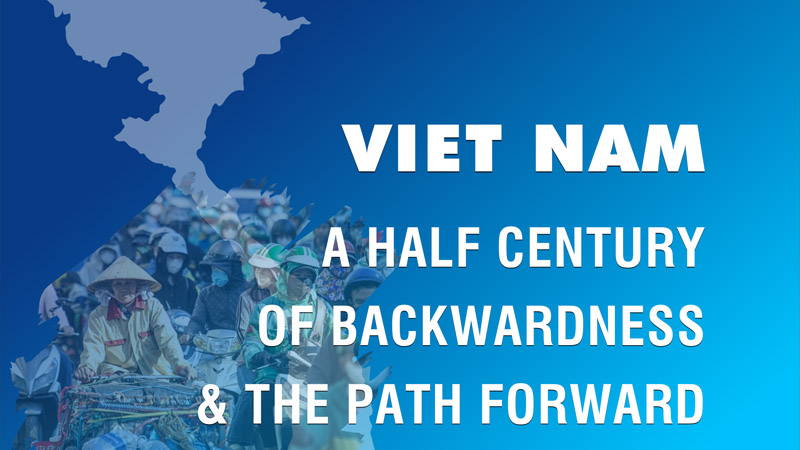June 24, 2010
When Vietnam’s communist legislators rejected the government’s controversial 56-billion-dollar proposal for a bullet train last weekend, many Vietnamese hailed them as brave representatives of the people.
Other observers, while seeing the vote as significant, were less quick to view it as a democratic breakthrough.
In its rare decision last Saturday, the National Assembly failed to approve the Hanoi-Ho Chi Minh City link and asked the government to further study the country’s transport options.
“As far as I know, the National Assembly’s vote against the proposed bullet train is the first time that body has knocked back a high-profile proposed project from the government,” said Ben Kerkvliet, emeritus professor and Vietnam specialist from The Australian National University.
“A significant threshold in national political institutional development has been crossed.” Some Vietnamese said the elected deputies — more than 90 percent of whom are Communist Party members — had shown they were truly acting in the people’s interests.
Readers who posted their views on the VietnamNet online news site praised the legislators as “brave” and “good representatives”.
“Many Vietnamese are overly enthusiastic” about the vote, said Le Dang Doanh, a former economic adviser to the government.
“They believe it is an unprecedented case and it could provide an example in the future how the National Assembly should act.”
They are mistaken, Doanh believes.
He praised the deputies as “courageous” and said their decision is important, but the railway was a very rare case in which the country’s most powerful political body, the Politburo, had not given an endorsement.
“That’s why the National Assembly were free to vote,” Doanh explained.
Vietnam is a one-party state where advocates of a multiparty system have been jailed. Almost all of the nearly 500 deputies are Communist Party members who, if faced with a Politburo resolution, must accept it, Doanh said.
“It’s obvious that the Politburo was cautious” on the project, said Doanh, who had called for “urgent” rejection of the bullet train proposal.
“This is not a project that everybody among the highest leadership supported,” said David Koh, senior fellow at the Institute of Southeast Asian Studies in Singapore.
Under the government’s proposal, the train would have travelled 1,570 kilometres (975 miles) between Vietnam’s two main cities at speeds of 300 kilometres an hour.
Plans called for the link to be built by 2035 at a cost amounting to almost 60 percent of the country’s gross domestic product last year.
“National deputies removed the country from a huge economic risk,” one delegate, Nguyen Minh Thuyet, told AFP.
He received supportive calls and text messages after the vote, which he said showed “a more democratic” tendency among the legislators.
Observers say the assembly has in recent years taken on a gradually increasing role in the country’s governance, becoming more vocal on major issues, and even rejecting nominees for ministerial appointments.
This was apparently the first time, though, that the legislature rejected a major economic project by the government, Thuyet said.
The lesson is that “there really is a lot of space” for people to have input on certain issues, though not on matters such as Vietnam’s maritime dispute with China in the South China Sea, Koh said.
“Democratic evolution? I don’t know whether we can stretch the argument that far,” he said.
The United States-based Viet Tan (Vietnam Reform Party), labelled a “terrorist group” by Hanoi, said the National Assembly’s decision resulted from public pressure.
It said the case reflects the importance of pushing for free speech and Internet freedom in Vietnam, which has been accused of adopting a more aggressive stance towards politically sensitive Internet sites.
“There has been an incredible online public outcry among bloggers and intellectuals” against the rail project, Viet Tan said.
Doanh, the economist, said people now believe that the National Assembly listens to their views.
“It’s really a strong psychological effect,” he said.
http://news.ph.msn.com/regional/article.aspx?cp-documentid=4171416





